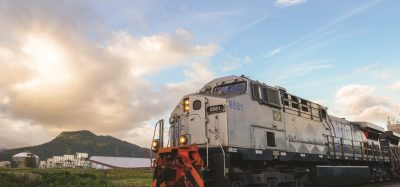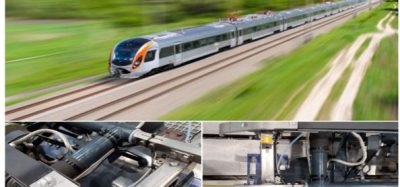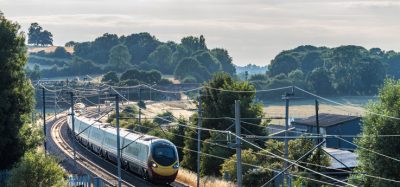How can we attract passengers back to the railway and optimise their experience?
Posted: 10 June 2022 | Alex Froom, Zipabout | No comments yet
In this interview for Global Railway Review, Alex Froom, CEO of Zipabout, talks about the challenges faced by the rail industry, how we can drive train usage back up and what we can do to contribute to a sustainable railway.


What challenges do you see in the rail industry today?
Many of the challenges in rail today are associated with extenuating factors that do not necessarily stem from rail itself. Post-COVID-19, for example, the question of how to enable people to feel safe and confident enough to leave their cars and jump back on public transport is at the forefront of industry minds.
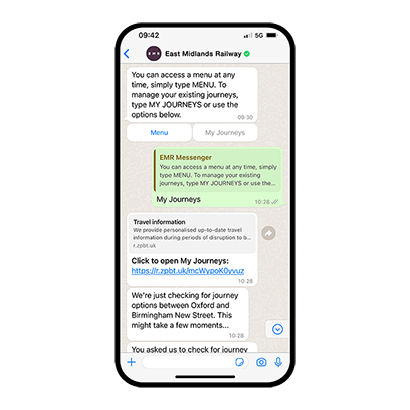

East Midlands Railway (EMR) Messenger is powered by Zipabout and delivered direct to passengers on channels they already have such as WhatsApp, Messenger and SMS.
Those who are concerned about travelling among crowds due to COVID-19 now join the thousands of passengers who suffer from anxiety when travelling (pre-pandemic) due to invisible disabilities, and they share the perception that travelling on public transport is either unsafe or simply too difficult.
Overcoming these misperceptions will be crucial, the first step to doing so is to understand that passengers need to be treated as individuals with unique needs, not as a collective. Everyone’s journey and experience is different, and therefore the service and information they need will be different too, particularly now when travel habits have changed beyond recognition.
To accommodate this and drive passenger numbers back up, rail should look to the flexibility offered by other transport modes, with services more aligned with user demand and shaped using intent data and behaviour patterns in place of such rigid timetabling.
The information passengers receive about their journey is another key area to look at. Universal broadcasting of service updates on Twitter is not the answer, and nor is more apps from operators. There are simply too many nowadays, giving consumers app fatigue. These apps often involve complex setups and too many intrusive push notifications. What’s more, people are becoming more aware on how their personal data is being tracked and used.
We are however starting to see solutions to some of these challenges. The rail industry is very much moving in the right direction, supported by innovation from companies such as ours.
How does journey information play a role in driving rail usage back up?
Our personalisation technology, made available to all UK rail operators through the Rail Delivery Group (RDG), gives everyone the opportunity to access a private, seamless travel tool, without the distraction or location tracking properties of an app.
Getting people back onboard our trains is paramount in boosting sustainability, which is vital as private car usage has rebounded to pre-lockdown levels. It’s all about improving the passenger experience and, specifically, about putting real-time journey information into passenger hands at exactly the right time and place so they can not only travel with confidence but also make the sustainable choice when the option arises.
An app-free future is crucial. Personalised journey information from Alert Me on National Rail Enquiries’ or operator services such as East Midlands Railway (EMR) Messenger is powered by Zipabout and delivered direct to passengers on channels they already have, such as WhatsApp, Messenger, and SMS. It is a far more user-friendly way of providing information and, unlike with apps, presumes not to assume the needs of the user on the other end. We are able to reach those who struggle to set up their own journey routes or read maps on a separate app, those who live in rural areas with poor mobile service and those who have low data allowances. Our personalisation technology, made available to all UK rail operators through the Rail Delivery Group (RDG), gives everyone the opportunity to access a private, seamless travel tool, without the distraction or location tracking properties of an app.
How can we encourage long-term sustainable change?
Rewarding loyalty and sustainable travel choices is key. Alongside journey information, we can send personalised offers and rewards to passengers as they travel, all without using any intrusive location tracking. We work with retailers and hospitality venues to enable them to build direct relationships with rail passengers, building trust with offers that are entirely relevant and, as with the journey information, sent via channels they already use.
Alongside journey information, we can send personalised offers and rewards to passengers as they travel, all without using any intrusive location tracking.
As an example of what’s possible in terms of providing incentives for passengers to return to rail, we trialled several successful campaigns with our retail partners, including WHSmith, Pret a Manger and Upper Crust. Our personalised messaging service has given them the opportunity to engage directly with their consumers in real-time, offering relevant rewards for travellers while they are out and passing the stores. Not only did these trials optimise the return on investment (ROI) on ad spend and drive footfall for those retailers, but they also encouraged sustainable behaviour change. With a retail integration, we can offer things such as a free coffee for taking the train instead of driving, or a free newspaper and sandwich for taking the less busy train.
How will UK rail operators benefit from this?
Beyond the retailer and the consumer, the wider benefits for the transport operators using personalisation technology and messaging channels to speak directly to passengers are clear. As well as incentivising behavioural change, our tech allows operators to better understand latent demand and passenger need, underlining the point made earlier about the need to shape timetabling without a reliance on historic data. It can be seamlessly integrated with their existing platforms, with no need to create another app, and no need for any third-party data or location tracking. These are benefits that many of our existing rail operator clients, such as EMR, c2c and LNER, are already seeing first hand.
What else can we do to support rail’s sustainability goals?
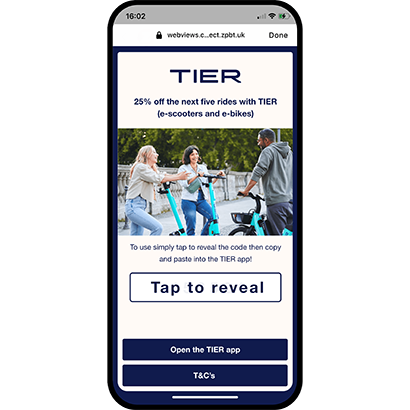

Zipabout has partnered with several international e-scooter companies, such as TIER, to access ‘last mile’ features to inspire greener travel.
When it comes to building a sustainable future in rail, there are several ways to contribute to the bigger net zero picture. It isn’t just about getting people back on to trains, although of course that’s crucial; it’s also about recognising that most people don’t start or finish their journey at a rail station and making sure that those first and last mile sections don’t just rely on cars. The key to that is integrating rail into a wider sustainable travel network.
Through Zipabout’s technology, passengers planning their rail journeys are offered first and last mile options, with e-scooters and e-bikes appearing alongside other modes such as buses and walking routes. A core aspect of our ‘last mile’ feature is to inspire greener travel and offer additional transport to passengers, and that’s why we partnered with several international e-scooter companies, such as TIER and Voi.
We see these partnerships as an incredibly important step in getting people back on public transport after the pressures of the last few years. Ultimately, we need to work together to reduce single car use. By supporting the net zero targets of the authorities and clients we work with, we can ensure that our information service explores every avenue to incite change.


Alex Froom is the CEO at Zipabout, a tech company personalising the future of public transport. After 18 years in the B2C digital creative sector, working with brands such as Xbox 360 and TfL, Alex co-founded Zipabout and now leads on product development within the company.
Related topics
Apps, Passenger Experience/Satisfaction, Sustainability/Decarbonisation, Technology & Software
Related organisations
c2c, East Midlands Railway, LNER, Rail Delivery Group (RDG), Zipabout




